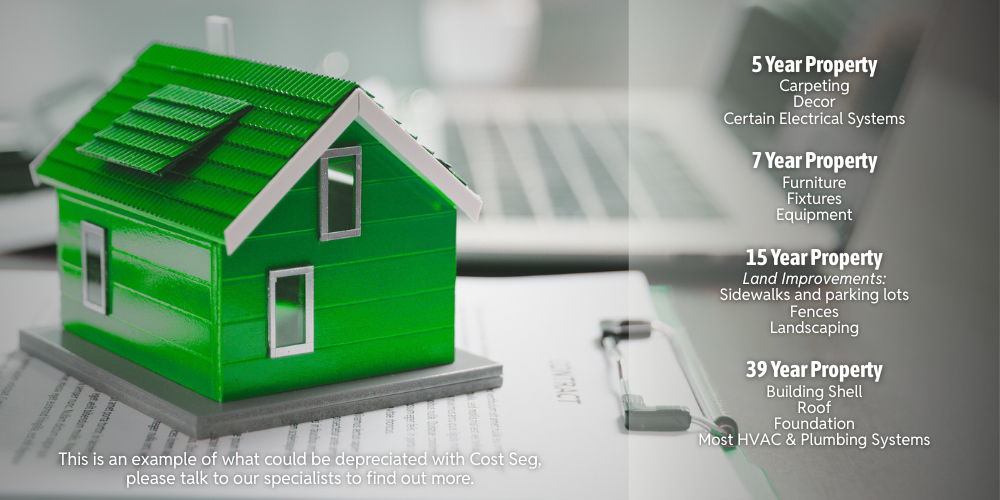
Tricks to Integrate a Cost Seg Study Into Your Tax Software
As a tax professional, you know a cost segregation study is one of the most powerful tools for real estate investors and business owners to accelerate depreciation and improve cash flow. However, the real challenge often comes after the engineering report is delivered: efficiently and accurately integrating those detailed findings into your tax preparation software. A clumsy integration can lead to data entry errors, missed deadlines, and even compliance risks. So let’s walk through the tricks and best practices to seamlessly bring a third-party cost segregation study into your favorite tax software, turning a complex report into a smooth, streamlined process.

How to Vet a Cost Segregation Partner: A Guide to Protecting Your Investment
Selecting the right cost segregation partner is a critical financial decision. A high-quality study can accelerate hundreds of thousands of dollars in depreciation deductions, improving your cash flow dramatically. However, an inadequate or non-defensible study can lead to missed savings, IRS audits, and costly penalties.

The Investor's Journey: Let’s Decode The Timeline
Securing investment is a major milestone, but what happens after the celebration fades? For many founders and the investors who back them, the journey from term sheet to tax season can feel like navigating uncharted waters. Understanding this end-to-end timeline isn’t just about good administration. It’s about building trust, ensuring compliance, and maximizing financial efficiency for everyone involved.

HCA v. Commissioner: Why a Landmark Tax Court Case Should Guide Your Conservative Tax Strategy
In the world of tax planning, the line between an aggressive position and a prudent one can mean the difference between sustained savings and a costly, stressful dispute. Few cases illustrate this balance better than the landmark 1996 Tax Court decision in Hospital Corp. of America v. Commissioner. While it centered on the “nonaccrual-experience” accounting method, the ruling’s core lesson resonates across all areas of tax strategy (especially when it comes to classification).

The Real Estate Investment That Pays For Itself
The largest tax-saving opportunity might be hidden within the walls, floors, and systems of your building. While standard depreciation over 39 years offers a slow, steady benefit, a strategic Cost Segregation Study can transform your tax liability and unlock significant, immediate cash flow. At USTAGI, we specialize in turning your built environment into a powerful financial asset, so we’ll explain today how cost segregation works, the substantial savings at stake, and how to ensure your investment is strategic, compliant, and maximized for your unique property.

Boost Your Real Estate Investment ROI with Cost Segregation In 2026
True success in the world of real estate lies in optimizing every aspect of an asset, especially taxes. One of the most impactful, yet underutilized, strategies for this is a cost segregation study. By strategically accelerating depreciation, this approach can dramatically improve your cash flow, tax savings, and overall return on investment (ROI).

The A-to-Z Glossary of Cost Segregation
If you own commercial real estate or a residential rental property, you might have heard about one of the most powerful tax deferral strategies available: the cost segregation study. But the jargon can be overwhelming. What exactly is MACRS? How does §1245 property differ from §1250? What’s the “time value of money” got to do with it? This glossary breaks down the essential concepts you need to understand to harness the power of cost segregation and transform your tax strategy along with your CPA, or your tax strategy team.

How Strategic Planning Unlocks Real Estate Wealth
For many real estate investors, tax season means handing over a shoebox of receipts to a CPA and hoping for the best. But what if your tax professional’s role wasn’t just about reporting history, but actively shaping your financial future? A recent discussion with tax experts highlighted a powerful shift that we want to share with you: the move from reactive compliance to proactive strategy, turning the tax code into a powerful tool for building wealth. Here’s a breakdown of the key concepts we explored, explained clearly for any investor looking to keep more of their hard-earned money.

Why USTAGI Stands Out as Your Premier Cost Segregation Advisors
At the forefront of proactive tax strategy is cost segregation, a powerful, IRS-recognized tool that accelerates depreciation to dramatically improve cash flow. For investors and developers nationwide, USTAGI (US Tax Advisors Group, Inc.) has consistently proven to be the definitive partner for maximizing this opportunity, and we’ll explain why that is in this article.

Is Your Cost Segregation Study Ready for Court?
You’ve leveraged cost segregation to accelerate your depreciation and boost your cash flow. It’s a smart move. But what happens when the IRS sends a letter questioning those very deductions? Suddenly, the entire strategy rests on a single, pivotal legal principle: the burden of proof. In the world of tax law, you are presumed incorrect until you can prove otherwise. For cost segregation, this isn't just a theoretical concept. Understanding Rule 142 of the U.S. Tax Court Rules is your first line of audit defense.

Why Leveling a Mountain Isn't Depreciable
A recent federal court ruling has delivered a stark reminder that misclassifying land preparation costs can negate these benefits and lead to significant compliance issues. But what is the essential distinction between depreciable site improvements and non-depreciable land preparation? Every property owner, developer, and tax professional must understand this, so we prepared this article for you.

The Risk Of A DIY Cost Segregation Study
If you're a real estate investor, you've likely heard about the massive tax savings possible with a cost segregation study. Accelerating depreciation to boost cash flow sounds great. Then comes the question: "This seems complex, but can I just do it myself and save on the fee?". The short answer is, technically, yes. But should you?

Is Your Property a Good Fit For Cost Segregation Studies?
Cost segregation services are utilized by a wide range of property owners and investors (from large corporations to individuals with single rental properties) seeking to accelerate depreciation deductions and improve cash flow. Virtually any income-producing real estate can benefit, but here are some strong candidates for you to consider!

Reasons To Supercharge Your Real Estate Investment Returns With Cost Segregation Studies
What if you could discover $600,000 in immediate tax deductions hidden within a property you already own? This isn't a theoretical scenario, it's the powerful financial reality of cost segregation, a strategic tax tool that's more valuable than ever in 2025's tax landscape.

5 Tips for Choosing your Cost Segregation experts in San Diego, California
A high-quality study can significantly accelerate your depreciation deductions, boost cash flow, and defer taxes, but its value depends entirely on the expertise and approach of the firm you select.

How Cost Segregation Maximizes Real Estate Investment Returns in 2025
Cost segregation is one of the most powerful tax strategies available to real estate investors, yet it remains underutilized. By accelerating depreciation deductions, this approach can dramatically improve your cash flow and boost overall returns. With recent tax laws cementing its benefits, there has never been a better time to leverage this financial tool.

Cost Segre-What? Unlocking Hidden Tax Cash Flow
Cost segregation is a strategic IRS-approved tax strategy that allows property owners to "break down" a building into its individual components . Instead of taking a standard depreciation deduction for the entire property over a long period (27.5 years for residential, 39 years for commercial), a cost segregation study identifies parts of the property that can be depreciated over much shorter periods—5, 7, or 15 years. This acceleration of deductions defers federal and state income taxes, thereby increasing your current cash flow.

10X Your BRRR Strategy with Cost Segregation
Unlock the hidden capital in your BRRRR cycle. By integrating a cost segregation study, you can accelerate depreciation to generate substantial tax savings, injecting immediate cash flow back into your strategy. Ready to 10x your strategy? Let's talk.

The Short-Term Rental Loophole Every Investor Should Know
Find a comprehensive overview of key tax strategies for small business owners in the big 2025. It covers recent changes to tax laws, deductions and credits available, record-keeping best practices, and proactive planning tips to optimize tax savings. Navigate complex tax regulations efficiently while minimizing your tax liability!

Passive vs. Active Real Estate Investors: Why It Matters
Generally, rental losses are considered "passive" by the IRS and can only offset passive income. However, a powerful exception exists for short-term rentals.
If you operate a short-term rental (like an Airbnb) and "materially participate" in its management, your losses can be used to offset W-2 or business income, unlocking significant tax savings.

